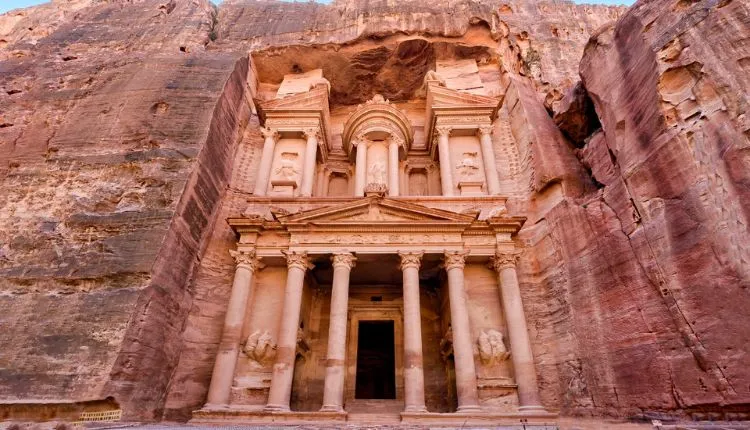
A Quick Overview Of Jordan
Although a small country, the Hashemite Kingdom of Jordan has played a significant role in the struggle for power in the Middle East, partly because of its strategic location at the crossroads of what Christians, Jews and Muslims call the Holy Land. The death of King Hussein in 1999 signified the start of a new period of political, social and economic reform. His son King Abdullah has instituted a number of measures: a free trade agreement with the USA, the creation of a low tax Special Economic Zone centered in Aqaba, privatization of many government-run businesses and joining the World Trade Organization.
Unlike many of its neighbors Jordan does not have oil and its economy depends largely on services and tourism. Visitors are attracted to Jordan Tours by its historical and cultural attractions. It is possible to visit the remains of cities, old before Christ was born, trek along ancient trails and roads mentioned in the Old Testament and through a landscape that has changed little in the last 2,000 years. It is possible to follow in the footsteps of Lawrence of Arabia from his headquarters fort at Azraq through the deserts to Wadi Rum where David Lean’s epic movie was filmed. There, travelers can trek with camels and live in tents with the local Bedouin.
Aqaba, the Jordanian royal family’s favorite holiday resort, offers some of the finest diving in the world in the Red Sea. The less energetic can simply laze on the beach or visit historical sites such as the recently discovered oldest purpose-built church in the world. Situated at the crossroads of Asia, Africa and Europe, Jordan is a land of great antiquity, home to some of the world’s most important archaeological sites. From the renowned city of Petra to the stunning desert landscapes of Wadi Rum, Jordan is a country of immense natural beauty and rich cultural heritage.
The Hashemite Kingdom of Jordan is an Arab state in Western Asia, on the East Bank of the Jordan River. Jordan is bordered by Saudi Arabia to the south, Iraq to the north-east, Syria to the north, Israel and the Palestinian territories to the west. The Dead Sea lies along its western borders and the country has a small coastline to the Red Sea in its extreme south-west. Jordan is strategically located at the crossroads of Asia, Africa and Europe. The capital, Amman, is Jordan’s most populous city as well as the country’s economic, political and cultural centre.
The territory of Jordan has been inhabited by humans since the Paleolithic period. Three stable kingdoms emerged there by the late Bronze Age: Ammon, Moab and Nabatea. After the spread of Islam in the 7th century, the Ottoman Empire came to rule much of the region. In the 16th century, the Emirate of Transjordan was established under the Ottoman Empire, and Emirs of the Hashemite family ruled the emirate until the 20th century. During World War I, Transjordan was part of the Arab Revolt against the Ottoman Empire.
Jordan is a sovereign Arab state in Western Asia, on the East Bank of the Jordan River. Jordan is bordered by Saudi Arabia to the south and the east, Iraq to the north-east, Syria to the north and Israel and Palestine to the west. The Dead Sea lies along its western borders and the country has a small shoreline on the Red Sea in its extreme south-west, but is otherwise landlocked. Jordan is strategically located at the crossroads of Asia, Africa and Europe. The capital, Amman, is Jordan’s most populous city as well as the country’s economic, political and cultural centre.
The capital of Jordan is Amman, which is also the largest city. Other major cities include Irbid, Zarqa, and Aqaba. Jordan is a relatively small country, but it is home to a number of significant archaeological and historical sites. These include the ruins of the ancient city of Petra, the Jordan Valley, and the Dead Sea. Jordan is a popular tourist destination, due to its many cultural and historical attractions. Jordan also has a number of modern amenities, such as excellent healthcare and education.
Tourism is an important sector of the economy in Jordan, with around 4 million visitors annually. Jordan is home to some of the world’s most famous archaeological sites, including the ruins of Petra and the city of Jerash. The country is also a popular destination for medical tourism, with many people coming to Jordan for treatment at its world-class hospitals. The Hashemite Kingdom of Jordan is a constitutional monarchy with an elected parliament. The King of Jordan is the head of state and the commander-in-chief of the armed forces. The King appoints the prime minister and can dismiss the parliament. The parliament can pass no-confidence motions against the prime minister or cabinet.
Jordan is a small country with a lot of potential. Despite its many challenges, the country has made significant progress in recent years and is well-positioned to continue its development trajectory in the coming years. The government of Jordan has set ambitious goals for the country’s development, and has put in place a number of initiatives and reforms to help achieve these goals. One of the most important initiatives is the National Agenda, which sets out a roadmap for the country’s development over the next five years. The government is also working on a number of other fronts to improve the country’s business environment, attract more investment, and create jobs. In addition, it is continuing to invest in education and healthcare, and is working to improve infrastructure and services.




